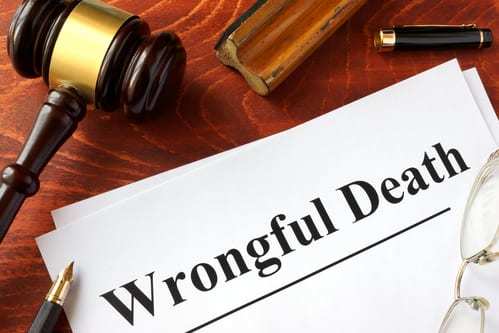Each year in Missouri, a number of people are killed in incidents that are caused by the negligent or wrongful actions of others. When a person is killed, a wrongful death lawsuit may be filed against the negligent party in order to hold him or her liable to pay monetary damages. It is important for the families of people who are killed in such accidents to understand who can file wrongful death lawsuits as well as the statute of limitations for wrongful death claims. If family members fail to follow the statute of limitations for wrongful death claims, they may be permanently barred from bringing a cause of action or trying to recover damages for their loved one’s death.
Understanding the Statute of Limitations for Wrongful Death Claims in Missouri
Under Missouri Revised Statute § 537.100, complaints in wrongful death claims must be filed within three years of the deaths of the victims. The time limitations for Kansas and Oklahoma are shorter. The statute of limitations acts as a deadline, and if it passes before a cause of action is filed, the court will dismiss any lawsuit that is filed after the statute of limitations has passed. It is important that the correct party files the lawsuit as well. If the wrong plaintiff files a wrongful death lawsuit within the three-year statutory period following the death and the correct party tries to later intervene in the case after the deadline has passed, the court could still dismiss the action.
Parties Who May File Wrongful Death Civil Lawsuits in Missouri
Missouri has specific rules in place about the parties who may file wrongful death civil lawsuits. Missouri defines the parties that have standing to sue for wrongful death and the order in which they have standing in Missouri Revised Statutes § 537.080. First in line to file lawsuits are the spouses or children of the decedents. If the children are deceased, their lineal descendants are first in line. The parents of the decedents may also sue if the decedents were unmarried and didn’t have children. People who do not fall in this first-in-line category may have the standing to sue if they are the siblings of the decedents or their descendants and are able to show that they have the right to damages under the law.
When the Wrong Party Sues
In Missouri, if the wrong party files a lawsuit within the statute of limitations, and the party who has standing later moves to intervene in the lawsuit, the motion and the case may be dismissed if the intervening party files the motion to intervene outside of the statute of limitations.
Peyton v. Bellefontaine Gardens Nursing Rehab Inc. involved a case in which the wrong party filed a wrongful death lawsuit within the three-year period. When the plaintiff learned that she was not the correct party, she filed a motion for her mother, who was the party who had standing to sue, to intervene. The motion to intervene was filed after the three-year statute of limitations had passed. The defendants filed a motion seeking the dismissal of the case, arguing that since the statute of limitations for wrongful death claims had passed before the proper party tried to intervene, the case was time-barred.
The trial court and appeals court both agreed that the case should be dismissed. The Missouri Supreme Court, however, held that the amended complaint filed after the statute of limitations had expired did relate back to the original petition and reversed the lower court’s ruling because Peyton was the attorney-in-fact for her mother. Her mother had earlier signed a power of attorney naming Peyton as her attorney-in-fact in August 2002. Peyton filed the lawsuit in July 2005, just before the statute of limitations was to expire. While she did not name herself in the lawsuit as acting as her mother’s attorney-in-fact, the Supreme Court held that the amended petition in which she did name herself as the attorney-in-fact related back to the original complaint because she had listed her mother as one of the interested parties in the lawsuit.
Getting Help from an Experienced Lawyer
Wrongful death cases are highly technical and require the application of deadlines and rules that are outlined in the statutory and case law of each state. An experienced personal injury lawyer, who has extensive experience in wrongful death, will make certain that the correct parties are involved in the case, file the case in court promptly, and guide those involved through each step of the process. It is best if people who have lost loved ones talk to personal injury and wrongful death lawyers as soon as possible following their loved ones’ deaths. This can prevent issues regarding statutes of limitation, help preserve critical evidence, and ensure that recovery rights are protected.
If your loved one lost their life due to the negligence of others, you don’t have to face the fight for fair compensation alone. Contact the Law Offices of Bryan Musgrave, and schedule a free initial consultation to explore your options. We can help you determine the best course of action so that you can obtain the maximum compensation you deserve.

